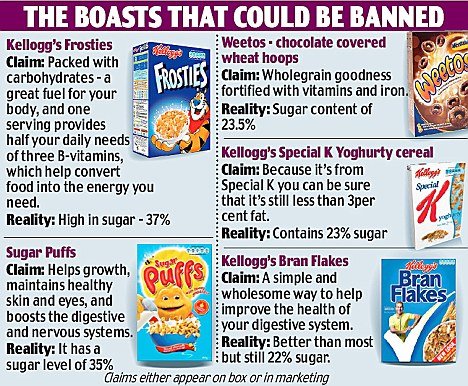Getting older isn't really something we think about for the most part. I reached adulthood in the 1990s and I still feel like they only recently ended. Almost like my mind paused in my 20s and forgot that time moved on. However, every now and then my body gives me subtle (and not so subtle) reminders that it's not in its 20s any more. Things like injuries not healing as quickly as they used to or aches and stiff joints in the mornings.
In my early 40s I started getting bad headaches so often that it began to cause my husband and daughter some concern. These headaches would last 2-3 days, painkillers did nothing to alleviate them and I felt like I had a hangover for the rest of the week. It took me longer than it should have to recognise that they were migraines, as I hadn't had them since puberty. Once I realised I was having migraines again it dawned on me that hormonal changes were the most likely cause, which meant that peri-menopause had crept up on me.

Image source
While I have no plans to have more children, it was still a bit of a shock to realise that my fertile time of life was coming to an end and I'd be entering a new phase of my life. As these changes happen and the hormones that have shaped and run my body begin to drop, and in some cases disappear, I've had to make changes in my eating and activity habits to keep my mobility up and avoid low energy and feeling unwell.
Of course I'm facing the changes that come with age differently to my husband, there are certainly commonalities in our experiences. He too has been experiencing bad headaches, which at least respond to pain relief, but while I've changed the way I'm eating, he has not.
What led to me looking at what I was eating with regards the migraines was a friend mentioning that dextrose triggered her migraines. This food additive is a sweetener and preservative and when I started checking the ingredients of the products we we buying I was shocked at how many, particularly savoury products, had them in.
Once I stopped what was coming into the house with dextrose and maltidextrin the pain level and frequency of the migraines seemed to reduce. Then when I realised that dextrose was added to most frozen chips I also stopped eating chips when eating out and things continued to improve. Later, due to an ongoing inner ear infection issue I was having, I decided to cut out refined sugar as much as possible in an attempt to bolster my immune system (refined sugar can impact it) and this helped with the migraines even more. I haven't completely shaken the headaches, but I don't get them more than once a month now (they seem to come with the out of whack hormone phases) and they are background level pain rather than the debilitating levels they used to be. Still, even background levels dragging on for days can wear you down, so I'm hoping to figure out if further changes can so them completely.
I've recently learnt that as we get older our insulin resistance increases and our immune systems deteriorate. Knowing this, it now makes some sense as to why I might be struggling with dextrose, maltodextrin and refined sugar. Dextrose itself isn't anything particularly bad, it's merely a form of simple sugar which is rapidly absorbed by the body. While maltodextrin is a more complex sugar, it is also rapidly absorbed by the body. Refined sugars in general have a faster absorption rate than the more complex, naturally occurring ones and this seems to be where my body is struggling. Diabetes even crossed my mind at one point, but tests cleared me for that.
Interestingly, cutting out refined sugars cuts out most ultra processed foods. Having recently listened to Dr Chris Van Tulleken talking about his book, Ultra Processed People, I'm glad to be well on my way to cutting those foods out.
Something else I've been doing is shifting to a more anti-inflammatory diet due to pain in my finger joints. This is actually kind of my own fault from overworking them when climbing and I thought, at one point, that I was getting arthritis. As it turned out it was actually capsulitis and tendinitis, which are still inflammatory injuries so changing my eating habits was likrly beneficial in helping them heal. I was beginning to think that I would have to stop doing climbs which required crimping, but I've gradually been able to start doing this again.

Other health issues which come with age that we're probably more aware of are loss of muscle mass and bone density. While good nutrition is again important to reverse, stop or slow this degradation, they can't work without exercises which promote muscle building and bone density.
Women are particularly susceptible to osteoporosis and loss of muscle mass due to the fact that with menopause they lose the very hormones that controlled the bone and muscle building process for much of their lives. Research conducted by Dr Stacy Sims has uncovered why lifting heavy and high intensity exercises benefit women so much in their later years.
I know I've still got a long way to go to stay in good health moving forward and I've been learning a lot recently. We're fighting a battle on several fronts in this regard; even most doctors aren't going to help as they will dismiss many issues as you get older and put it down to age. There's a general attitude that health issues come with age and you just have to learn to deal with it and maybe take some pills, but there's nothing you can do about it.
The food industry holds a surprising amount of power with what we consume as well. For years they have been largely unregulated and even paid for research to to "prove" claims of the health benefits of their lucrative ultra processed foods. Thankfully more awareness is being raised around these foods and some countries are starting to crack down on their false health claims.

Image source
As I continue from my previous post on the theme of choosing how we age, I'm aware of the irony of my starting sentence here, because aging is something that has been running around my mind a fair bit of late as I research more on it. The biggest thing I'm taking from both that research and my recent experiences is that there is absolutely something you can do about the deterioration that comes with age, despite the prevailing belief that there isn't. If aging gracefully is giving in to deterioration, then I think I'll just be aging disgracefully instead. 😈